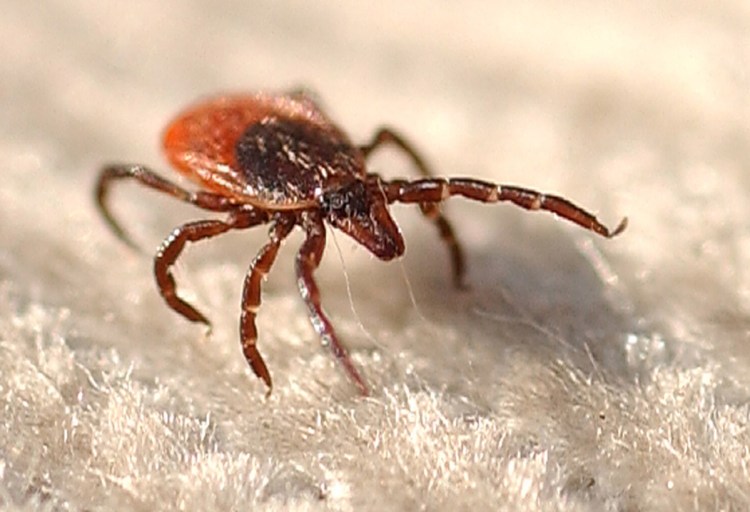Recent studies have shown that Lyme disease – a tick-borne illness with debilitating consequences – is on the rise.
If left untreated, this disease can cause arthritis with severe joint pain and swelling. For children under 18, it may severely impair cognitive function. However, far from getting closer to eradication, this disease is growing more and more prevalent.
As global warming causes warm temperatures to extend deeper into the year, the season in which ticks are most likely to latch on to a host is being extended.
Ticks are now able to thrive in environments where they previously would have frozen to death. This is disastrous for Maine, particularly in areas along the coast. Here, cases of Lyme disease have reached over 1,000 per year since 2011, with a spike to almost 1,800 cases in 2017.
I know from experience: I spend my summer months by Echo Lake, and my father has contracted Lyme disease on three occasions.
There are ways that you can avoid picking up ticks: avoiding long grass and staying in the center of the trail, to name a few. You can also use DEET-based repellents. However, these repellents are harmful to creatures such as cats, bees, fish and aquatic insects.
In the end, there is only one way that we may truly combat Lyme disease and other tick-borne illnesses: by combating global warming.
While there are small things we each can do in our own lives to combat global warming, the most effective way is by voting for leaders who will enact legislation that will mitigate its effects.
If we allow those we elect to protect us to continue to pass legislation that is harmful to our planet, diseases like Lyme disease will only become more and more prevalent in our communities.
Sophie Davies
Mount Vernon
Send questions/comments to the editors.



Success. Please wait for the page to reload. If the page does not reload within 5 seconds, please refresh the page.
Enter your email and password to access comments.
Hi, to comment on stories you must . This profile is in addition to your subscription and website login.
Already have a commenting profile? .
Invalid username/password.
Please check your email to confirm and complete your registration.
Only subscribers are eligible to post comments. Please subscribe or login first for digital access. Here’s why.
Use the form below to reset your password. When you've submitted your account email, we will send an email with a reset code.